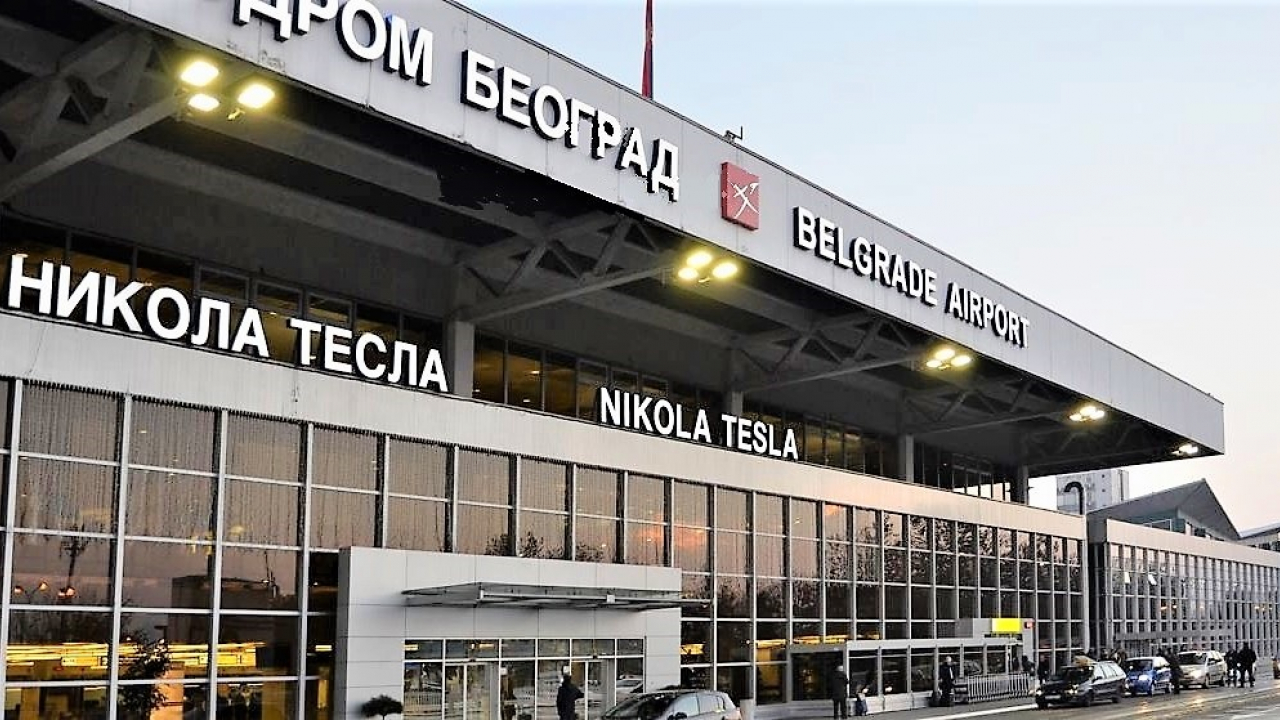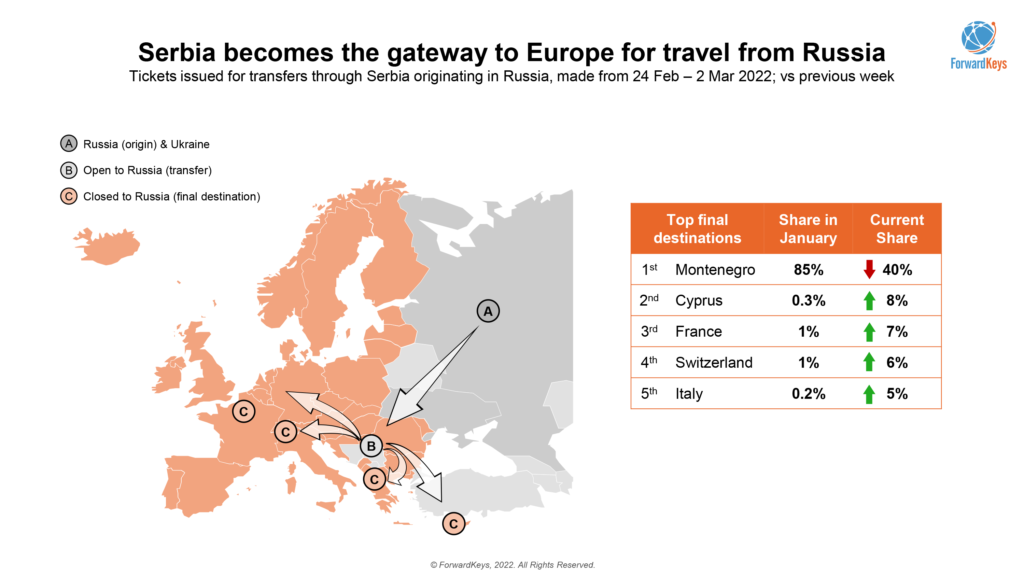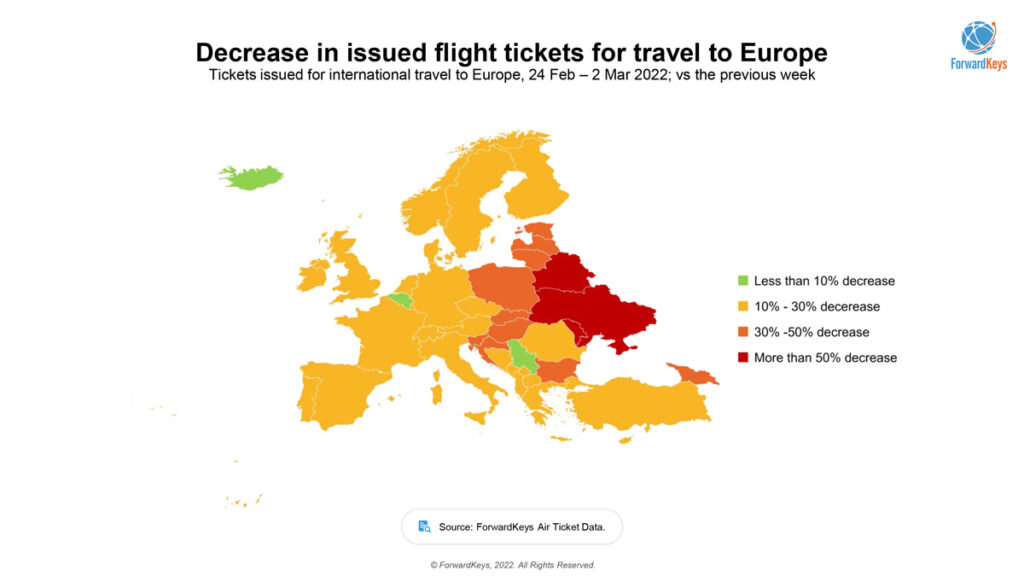Despite flight bans, Russians are finding their way into Europe via Serbia
Kevin Rozario
March 9, 2022

|
Serbia is now the only European air corridor left open to Russians and they are using it to circumvent bans across mainland Europe. |
Russia’s war on Ukraine, following an invasion on February 24, led to an immediate – and large – spike in flight cancellations to and from Russia. At the time, the highest cancellation rates by volume came from Germany (773%), France (472%), Italy (152%), the UK (254%), India (285%) and Turkey (116%), according to seat analyst ForwardKeys.
The invasion also triggered a collapse in Russian outbound travel with leisure destinations suffering the most. In the period February 24-26, the biggest losers were Cyprus (300%), Egypt (234%), Turkey (153%), the UK (153%), Armenia (200%), and Maldives (165%).
Since then, widespread sanctions, plus bans on Russian airlines entering European airspace, have taken effect. The latter led to Aeroflot, Rossiya, S7 and Azur Air all announcing the suspension of their international flights, except to certain markets, for example Minks in Belarus.
But Russians wanting to enter Europe have found a way in. As bookings crashed to most destinations, one has stood out for bucking the trend: Serbia, the only European air corridor left open to Russia. The latest data from ForwardKeys reveal that 60% more flight tickets were issued for travel from Russia to another destination via Serbia in the week immediately after the invasion. The hike is versus numbers for the whole of January.
Also in January, 85% of transfers from Russia via Serbia were to Montenegro. In the week after the invasion, that figure dropped to 40%, as Serbia suddenly became a hub for onward travel to other destinations such as Cyprus, France, Switzerland, Italy and elsewhere.
Olivier Ponti, vice president of insights at ForwardKeys, commented: “What’s notable is the speed with which Serbia has become the gateway for travel between Russia and Europe. However, these are early days in a global political and economic crisis, so what happens to travel will certainly be affected by the progress of the war and the impact of sanctions.”
How source marketsare seeingEurope
As the war in Ukraine rages, bookings into Europe are down, but to varying degrees, stalling what had been a strong recovery in travel since early January.
ForwardKeys compared flight bookings in the week following the invasion (February 24 to March 2) to the previous seven days. Excluding Ukraine and Moldova, which closed their air space, and Russia and Belarus which were subjected to flight bans and safety warnings, the countries worst affected were generally those closest to the conflict.
Bulgaria, Croatia, Estonia, Georgia, Hungary, Latvia, Lithuania, Poland, Slovakia and Slovenia all saw a 30% to 50% collapse in bookings. All the other European countries experienced a decline of between 10% and 30%. Exceptions were Belgium, Iceland, and Serbia, which saw single digit drops. Domestic flight bookings in Russia have also fallen by 49%.
Analysis by source market shows that intra-European air traffic was more affected than transatlantic travel. Flight bookings within Europe fell 23%; whereas they were down by just 13% from the United States.
Ponti said: “What I find surprising is that transatlantic travel and western European destinations have been less badly affected than I feared. North Americans can tell the difference between war in Ukraine and war in Europe, and so far, it seems that travelers regard the rest of Europe as relatively safe.
“Over the coming weeks, I expect we will see inflation and possible fuel supply issues further affecting what would otherwise be a strong post-pandemic recovery, as COVID19 travel restrictions are progressively lifted.”


